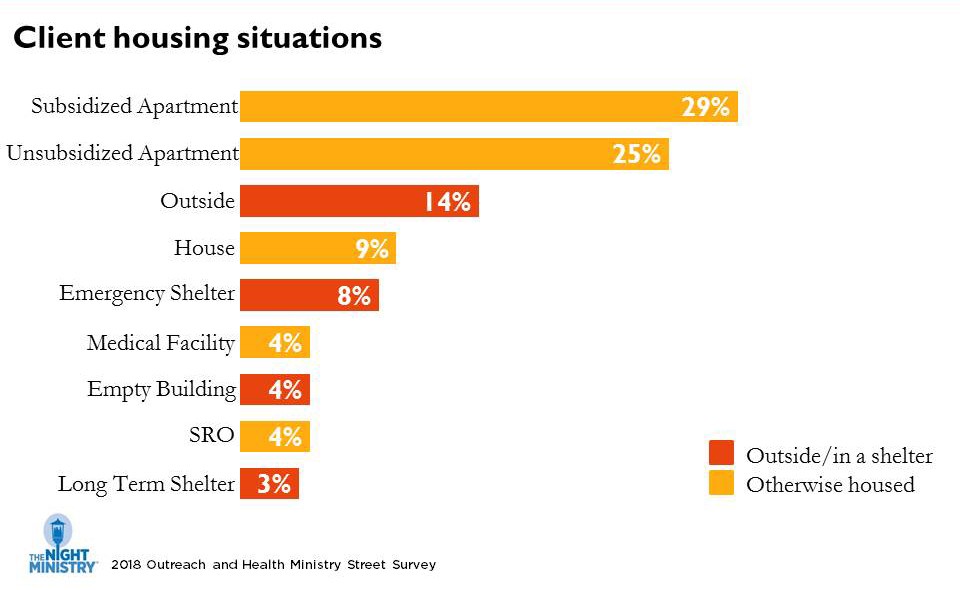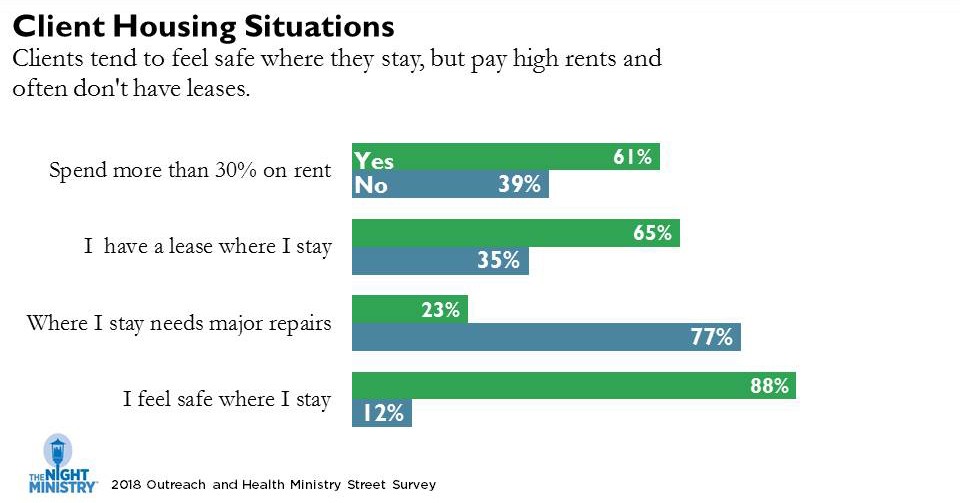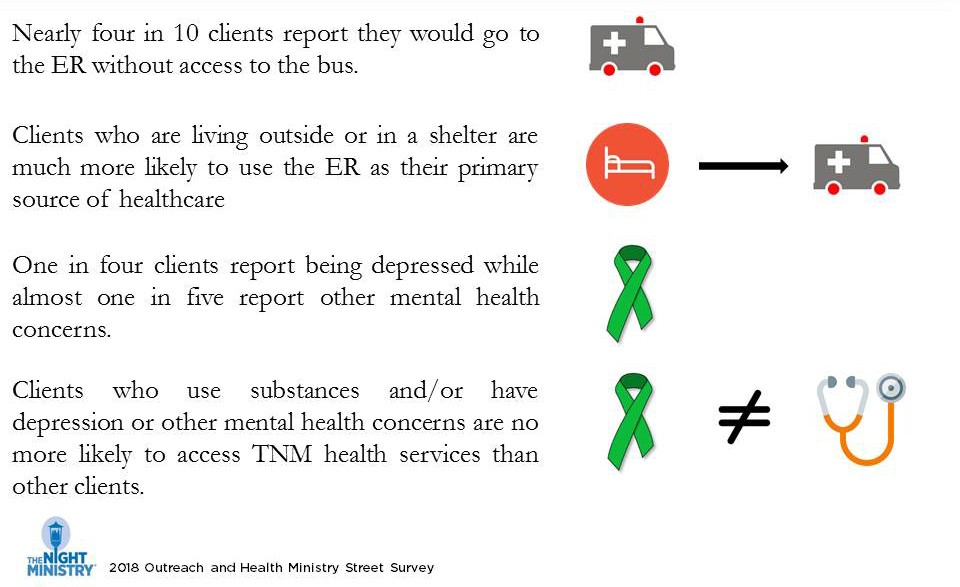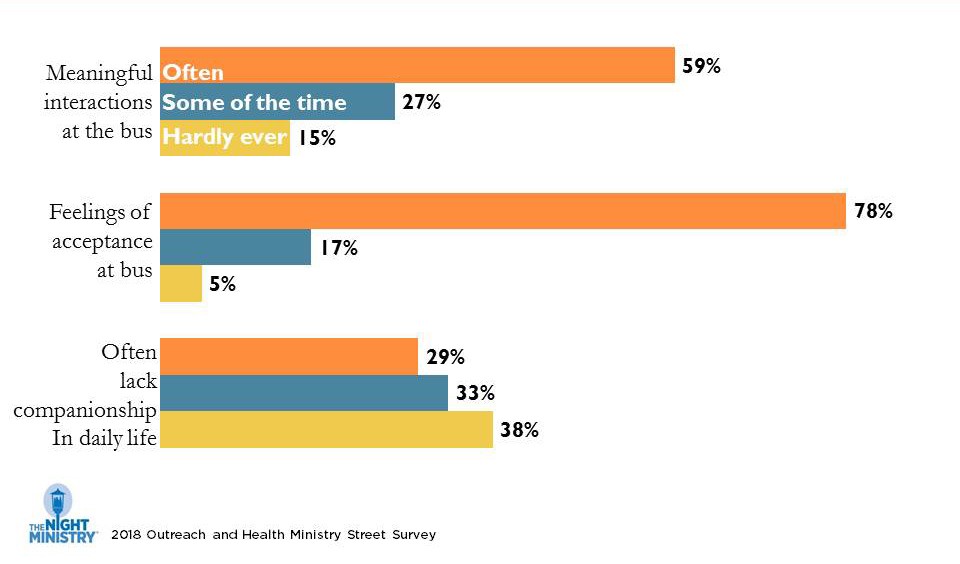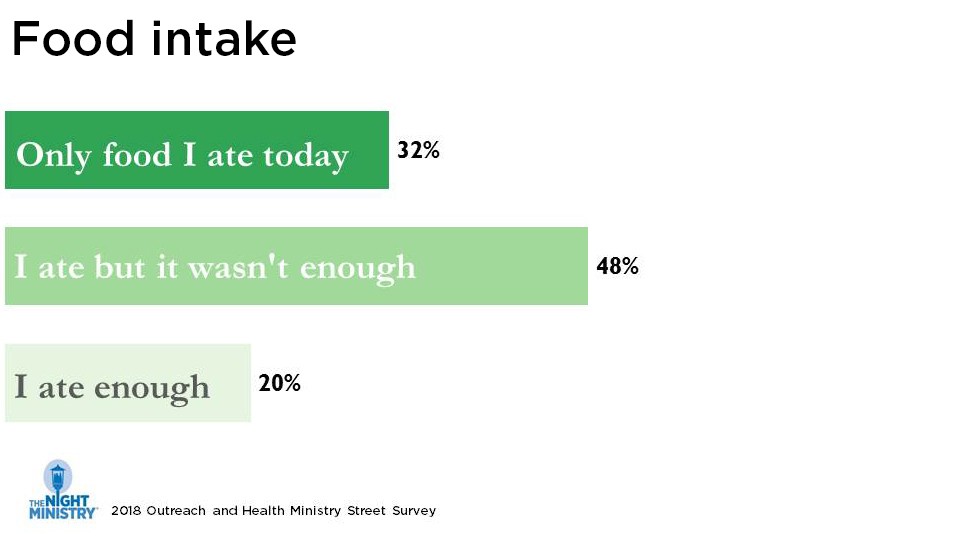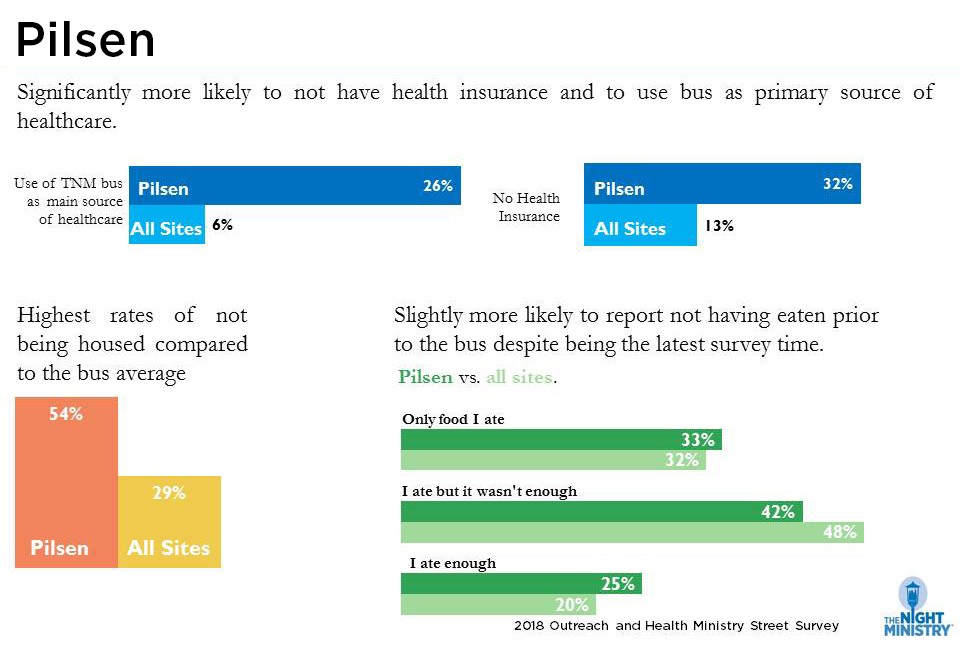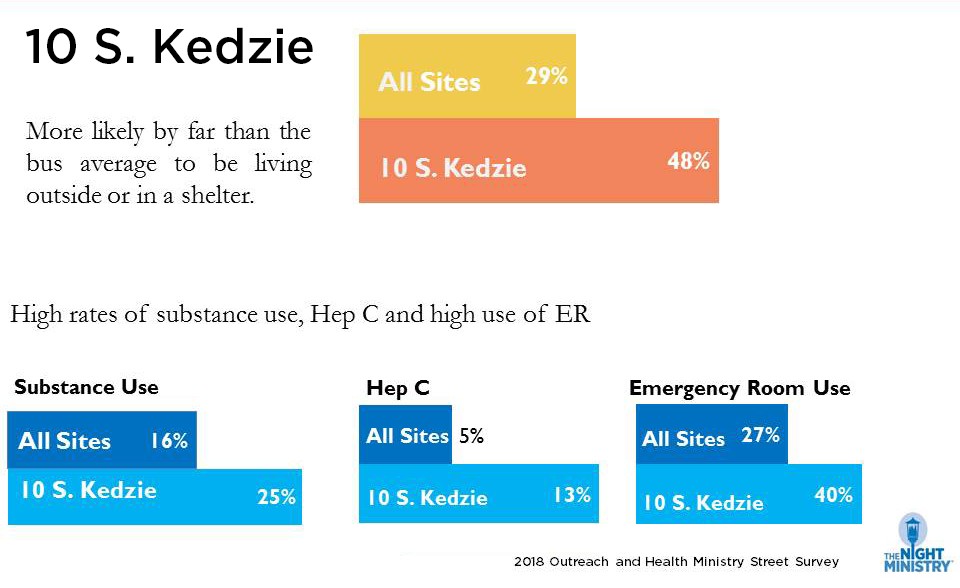Who Are We Serving at the Health Outreach Bus?
Digging into the 2018 Outreach and Health Ministry Street Survey Results
Creating a data-driven culture of learning is one of the goals of Serving in the Next Decade, The Night Ministry's current strategic plan. Gregory Gross, Director of Mission Fulfillment, says surveys conducted with The Night Ministry's clients play key roles in building that culture.
"All of the answers and results we get on surveys are data we use to learn about how well we are fulfilling our mission and how we can make improvements to our services," Gross said.
The Night Ministry recently released the results of its annual Outreach and Health Ministry (OHM) Street Survey, conducted earlier this year at six of the Health Outreach Bus stops.
"The Street Survey is meant to find out more about the individuals whom the Bus is serving and their current circumstances as well as to assess how well the services we are providing meet their needs," Gross said.
This year Mission Fulfillment, along with a number of trained, dedicated volunteers, conducted surveys with 371 clients, the highest number in the OHM Street Survey's six-year history, collecting more than 23,000 data points.
"There is much need in all communities which the Health Outreach Bus visits," said Gross. "Many folks are 'house poor,' meaning they have housing but nearly all resources go to pay for it. Thus, there is little left for health care, food, and other essentials. This underscores the importance of all of the services the Bus provides."
Here are some highlights:
Satisfaction with Services
Surveyed clients report high levels of satisfaction with the services offered at The Health Outreach Bus, with 92% saying they are either satisfied or very satisfied, indicating that the Bus staff is meeting the expectations of the clients whom they serve.
Housing
Clients of the Health Outreach Bus live in a diverse and precarious array of housing situations. On average, clients report having some type of housing, from unsubsidized apartments and homes to subsidized apartments, SRO, or medical facility. However, they are likely to be living in an unstable situation such an apartment without a lease or they are paying more for rent than is generally considered affordable. Meanwhile, nearly a third of clients are homeless, living on the streets, in an abandoned building, or in a shelter.
Health Care
Nearly 40% of clients reported that they would visit an emergency room for health care if they could not access the services at the Health Outreach Bus. Last year, The Night Ministry was able to prevent 201 such visits by delivering health care services on the Bus, saving the public health system nearly $186,000.
Human Connection
Large majorities of survey respondents report often having meaningful interactions with people at the Health Outreach Bus and feel accepted for who they are. "Across the board, there is a lot of client trust with the Bus staff," said Gross, "which is really encouraging and helpful for the staff to see that, even though there are some significant needs, there is a large amount of trust and community being built at the Bus stops."
Hunger
Hunger is a persistent problem across all neighborhoods visited by the Health Outreach Bus. 80% of clients report not having any or enough food before coming to the bus, with nearly one-third having not eaten at all.
"This speaks to the need for volunteers to provide a hot meal alongside the bus," said Gross. (Click here to sign up to provide meals at the Health Outreach Bus stops.)
Communities of Highest Need
Survey results from the Health Outreach Bus stops in Pilsen and at 10 S. Kedzie in East Garfield Park underscore the need for The Night Ministry's services in those neighborhoods.
"The results In Pilsen reinforce what we've seen year over year, that there is a large population of folks who visit the Bus in that neighborhood who are literally homeless, living on the streets or living in shelters," Gross said.
Clients in Pilsen are also significantly more likely to not have health insurance and are more likely to use the Bus as their primary source of health care.
At 10 S. Kedzie, where clients are far more likely to be experiencing homelessness than other stops, health services are also critical.
"A lot of the folks said that they go to the emergency room for their primary source of health care," Gross said. "That, along with high rates of substance use and hepatitis C infection, speaks to the need of bringing the Bus there."
